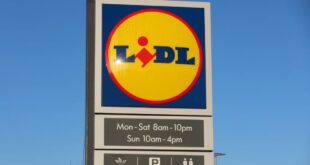Trading has been challenging this year, with high inflation, rising interest rates and geopolitical tension weighing on share prices. The FTSE 100 has increased by 3% overall this year, but it’s not been smooth sailing with daily drops of up to 6%.
However, some investors are viewing depressed share prices as a trading opportunity. Laura Hoy, equity analyst at Hargreaves Lansdown, comments that “Bargain hunters have started sniffing around some of the market’s beaten-down stocks, but are there truly any undervalued diamonds in the rough?”
Let’s take a closer look at three ‘turnaround stocks to watch’ picked by Hargreaves Lansdown.
Three companies with the potential to rebound
A short-term share price fall may represent a buying opportunity, but it can also mark the start of a longer-term decline.
Laura Hoy advises that “It’s unusual for a stock to be lowly valued for no reason. The market tends to price in risk. But there are some companies with compelling turnaround potential.”
1. Royal Mail (RMG)
Royal Mail’s share price increased from 124p in early 2020 to almost 600p in mid-2021. Since then, its share price has steadily declined by 45%, not helped by delivery delays due to staff shortages and concerns over the cost of living squeeze affecting parcel volumes.
That said, there are positive signs for Royal Mail. While parcel volumes have declined from their pandemic high, they remain 15% higher than in 2019. And the company is investing in automated parcel sorting systems, predicted to deliver a £30 million cost-saving this year, albeit with significant up-front investment.
Royal Mail is also targeting a reduction in wages. Laura Hoy states that “So far, we’ve been impressed with management’s ability to bring the unions onboard with its cost-cutting drive.” However, its plan to save £40 million by cutting 700 managers may meet stiffer resistance.
Royal Mail is currently trading on a modest price-to-earnings ratio of 3.8, compared to 9.9 for Deutsche Post and 10.7 for FedEx. It also offers an attractive dividend yield of 5.2%.
However, analyst price targets suggest some potential downside risk from its current share price of 326p. Its 12-month price forecast ranges from 275p to 800p, with an average of 550p, according to the Financial Times. Laura Hoy comments that “The market’s not convinced that the group can pull off its efficiency drive.”
2. Meta Platforms (FB)
Meta’s share price has fallen by over 40% since its high of $384 in September 2021. And its 26% fall after disappointing results in February was the highest ever daily loss for a US firm.
Laura Hoy described Meta’s quarterly results as “lacklustre” as “revenue growth of 20% was more than offset by rising costs”. However, she adds “More concerning was management’s forecast for growth to slow considerably in the year ahead.”
That said, Hoy thinks “the market’s reaction might have been too harsh”. This is partly due to the company’s “unparalleled trove of customer data” to generate advertising revenue. Meta is a social media behemoth, owning Facebook, WhatsApp and Instagram. These platforms are used by 77% (3.6 billion) of global internet users, according to Statista.
Hoy also points out that Meta is “sitting on a rather large pile of cash”, which should help in seeking growth opportunities, including the metaverse.
Meta is currently trading on a price-to-earnings ratio of 16.2, half the Nasdaq 100 index p/e ratio of 33.5. According to Marketwatch, the median brokers’ price target is $334, which would represent a 50% increase from its current share price of $223.
3. Tate & Lyle (TATE)
Tate & Lyle is a food and beverage producer, with a particular focus on sweeteners and thickeners. Having fallen from an 800p high to a low of 624p last year, its share price has steadily climbed back up to 745p.
Laura Hoy comments that the company has “recently embarked on a major strategic overhaul”. This entails “selling off the least profitable parts of the business and refocusing on higher-growth areas.” It plans to pay £500 million to shareholders as a special dividend from the estimated £900 million proceeds.
The company is well-positioned to capitalise on the market for sweeteners, which Statista reports is growing at 7.4% per year. However, Tate & Lyle is facing a significant increase in costs due to the current disruption to commodity supplies, particularly corn supplies from Ukraine. This may start to impact profitability once existing contracts expire.
Tate & Lyle is currently trading on a price-to-earnings ratio of 15.8 with a dividend yield of 4.1%. According to MarketBeat, the average broker price forecast is 908p, suggesting a potential upside of over 20%. Laura Hoy agrees, stating that “Tate & Lyle looks to be on the brink of a fully-fledged turnaround.”
Take away
Royal Mail, Meta and Tate & Lyle may be well-positioned for a turnaround in their fortunes. However, investors should carry out their own research before making any trading decisions.
If you’re looking for a broker for share trading, it’s worth reading our guide to our top-rated share dealing accounts.
Featured investing articles
Investments involve various risks, and you may get back less than you put in. Tax benefits depend on individual circumstances and tax rules, which could change.
Was this article helpful?
YesNo
Some offers on The Motley Fool UK site are from our partners — it’s how we make money and keep this site going. But does that impact our ratings? Nope. Our commitment is to you. If a product isn’t any good, our rating will reflect that, or we won’t list it at all. Also, while we aim to feature the best products available, we do not review every product on the market. Learn more here. The statements above are The Motley Fool’s alone and have not been provided or endorsed by bank advertisers. John Mackey, CEO of Whole Foods Market, an Amazon subsidiary, is a member of The Motley Fool’s board of directors. The Motley Fool UK has recommended Barclays, Hargreaves Lansdown, HSBC Holdings, Lloyds Banking Group, Mastercard, and Tesco.


